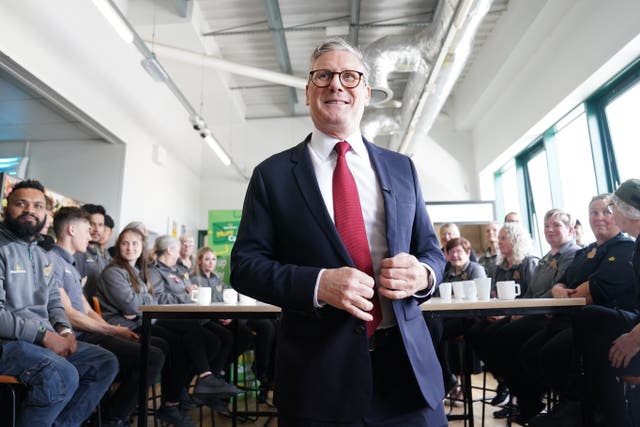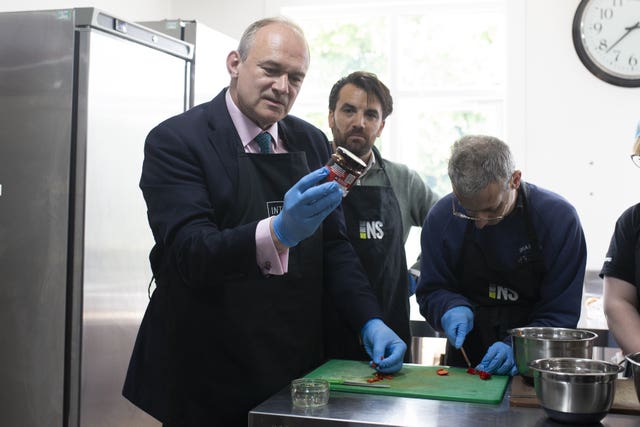YouGov projects Tories to slump to ‘lowest seat tally in their history’
The pollster’s latest projection would result in a 200-seat majority for Labour if it came to pass on July 4.

The Conservatives are projected to slump to their “lowest seat tally in the party’s almost 200-year history” at the General Election, according to a pollster.
YouGov said its latest study projects Labour to secure 425 seats, the Tories 108, the Liberal Democrats 67, SNP 20, Reform UK five, Plaid Cymru four and the Green Party two.
It noted such a scenario would hand Labour leader Sir Keir Starmer a 200-seat majority while it added Reform UK leader Nigel Farage is “likely” to win in Clacton.
YouGov used a technique known as multi-level regression and post-stratification (MRP) to model the outcome of the election in every constituency across Britain.
It said the estimated seat projections were based on modelled responses from 36,161 adults in England and Wales, and 3,818 in Scotland, between June 11 and 18.
Several high-profile Conservatives, including Chancellor Jeremy Hunt, would lose out if the projection played out at the ballot box on July 4.
YouGov wrote: “Our new MRP has the Conservatives on their lowest seat tally in the party’s almost 200-year history.”
It added: “Our latest model has 109 seats as toss ups – meaning that the winning party’s lead is less than five points. Sixty five marginal seats are contests between the Conservatives and Labour.”
Elsewhere, a poll by More In Common projected a Labour majority of 162, just shy of its 1997 and 2001 landslides, with the Conservatives slumping to their worst seat total since 1906.
The survey of more than 10,000 people suggested the Conservatives would hold just 155 seats.
High-profile casualties forecast in the More In Common projection include Mr Hunt, who would lose his Godalming and Ash seat to the Liberal Democrats, and Defence Secretary Grant Shapps, who would lose Welwyn Hatfield to Labour.
The poll suggested Labour would make gains across the North of England and the Midlands, while becoming the largest party in Scotland and winning much of Wales.

Luke Tryl, executive director of More In Common UK, said the fact it is one of the more positive polls for the Tories “shows how deep a hole the party finds itself in” with barely two weeks left until polling day.
He said: “Far from the narrowing in the polls many expected to see by now, the Conservatives’ position instead appears to be getting worse and only a small move away from them could see them reduced to 107 seats.
“Labour on the other hand looks set to inherit a historic majority while remaining largely undefined in the eyes of the electorate.”
But he warned the “broad electoral coalition” that looks set to secure power for Labour points to “potential difficulties in creating a governing agenda that unites such disparate tribes” at a time of heightened “electoral cynicism”.

Meanwhile, the SNP will be reduced to 18 seats, according to the poll, with Labour sweeping through much of central Scotland and becoming the nation’s biggest party for the first time since 2015.
The poll, conducted on behalf of The News Agents podcast, surveyed 10,850 people and used MRP.
The More In Common survey forecasts Reform UK winning no seats, with the Tories holding Clacton against Mr Farage’s challenge.
But the poll is based on data collected between May 22 and June 17, which includes the period before Mr Farage announced his decision to stand in the seat.
Savanta said its first MRP of this election campaign for the Daily Telegraph, in which 17,812 UK adults were interviewed, projects Labour would win 516 seats, with the Conservatives falling to 53 MPs.





